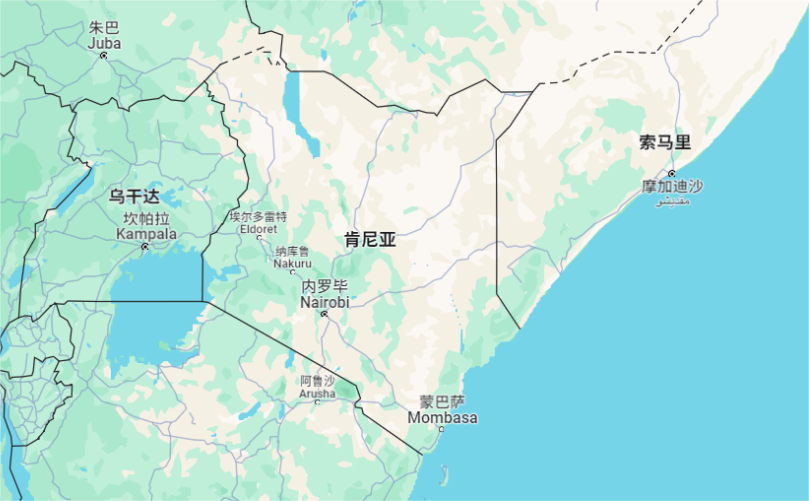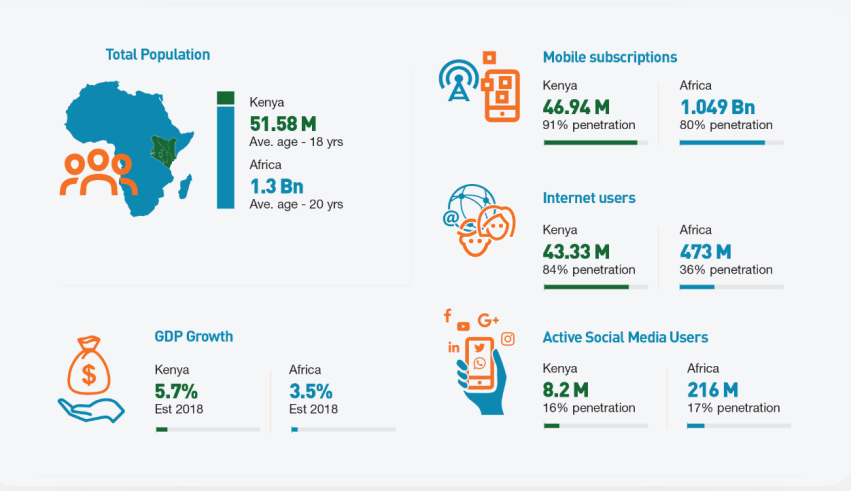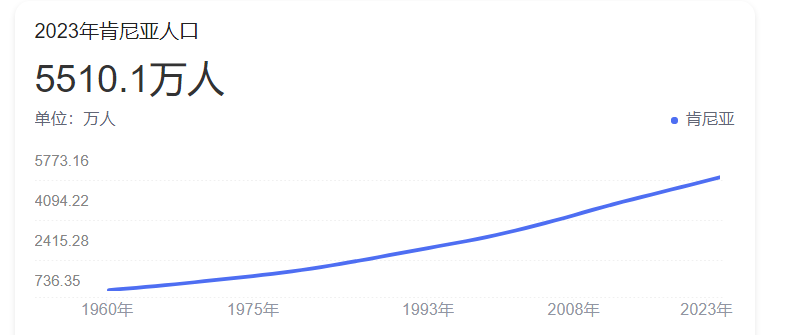In a previous article, PASA took us on an in-depth exploration of the emerging African betting market, highlighting 888 Africa's rapid rise to acquire one million users within a year (related article: How 888 Africa Conquered the African Market in Just One Year). Today, we continue this theme by introducing a newer betting market in Africa—Kenya.
Although Kenya is just one of many African countries, its geographical location and population give it a significant advantage. In fact, Kenya could be one of the largest betting markets in Africa, with a substantial number of sports enthusiasts, which forms a crucial part of the Kenyan betting market.
Market estimates suggest that the Kenyan betting market has experienced rapid growth in recent years, especially in online betting, with projections of over 8 million users by 2024.
It is estimated that the annual betting revenue GGR in Kenya's sports betting industry has already exceeded 2 billion US dollars.
For context, even in the recognized betting powerhouse of the Philippines, the annual GGR is around 5 billion US dollars. As an emerging market, Kenya's market size has already reached 2/5 of that of the Philippines, highlighting its significant potential.
This article will attempt to unveil the secrets of the Kenyan betting market, delve into the licensing application for Kenyan betting, and introduce you to this "gold mine" of online betting.
The History of Gambling in Kenya
Kenya has a long and diverse history, where gambling has always been linked with traditional social games and betting on various events such as wrestling and horse racing.
These forms of gambling are deeply rooted in the culture of different ethnic groups, serving both entertainment and, given Kenya's unique national conditions, as a means to address specific social conflicts.
Since 1890, when the British began their colonial rule over Kenya, there were no legal restrictions on gambling activities, and the market had not yet developed significantly; after gaining independence in 1963, the Kenyan government began to establish its own gambling legislation.
In 1966, the enduring "Betting, Lotteries and Gaming Act" was passed, regulating all forms of gambling activities, including casinos, lotteries, and sports betting. Additionally, the Kenyan government established a regulatory body, the Betting Control and Licensing Board (BCLB), responsible for issuing licenses and controlling gambling.
During the 1970s and 1980s, lotteries and casinos began to appear in Kenya and quickly became popular among locals and tourists. Lotteries provided financial support for various social projects, while casinos attracted foreign tourists, thus boosting the tourism industry.
By the early 2000s, with the advent of the internet, online gambling began to emerge in Kenya. The popularity of football and the convenience of watching international sports events via online platforms particularly spurred the growth of sports betting.
In 2019, the Kenyan government introduced stricter regulations to address concerns about gambling addiction, especially among the youth. These measures included a 20% tax on all betting winnings and a 15% tax on the total revenue of operators, along with stricter advertising rules.
By 2020, catalyzed by Covid19, Kenya's online betting market developed further, with the proliferation of the internet and digital technology locally leading to explosive growth in users—increasing by millions in just a few years.
Since then, Kenya has become fertile ground for the development of online betting, attracting the attention of numerous international operators who have significantly increased their investments.
The Online Betting Market in Kenya
The rapid growth of Kenya's online betting market can be attributed to its unique national and ethnic characteristics.
Kenya is a multi-ethnic nation with 42 ethnic groups, divided into three major language families: Bantu, Nilotic, and Cushitic, with a population of approximately 55.65 million. The official languages are English and Swahili.
Together with Uganda and Tanzania, Kenya is known within the industry as one of the three fastest-growing betting markets in Africa. These three countries share similar betting cultures despite language differences.
Kenya is one of the fastest-growing economies globally, consistently maintaining a GDP growth rate of around 5% over the years.
The country is a member of several regional trade communities and, with its strategic coastal city of Mombasa, is widely regarded as the financial, communication, and transportation hub of East and Central Africa.
The expansion of tourism, telecommunications, transportation, and the construction industry, supported by the recovery of agriculture, sustains Kenya's national GDP, backed by a large number of English-speaking professionals. The widespread ability to use English also provides convenience for online operators entering the Kenyan market.
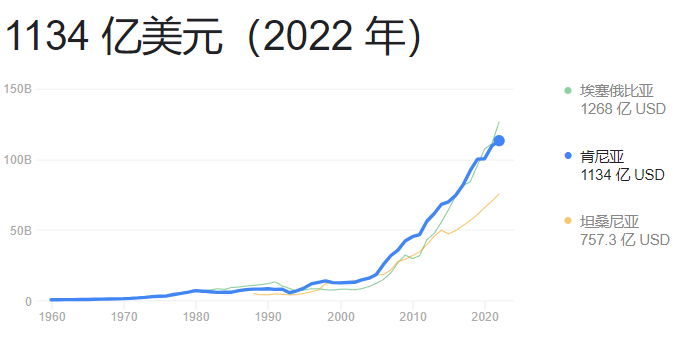
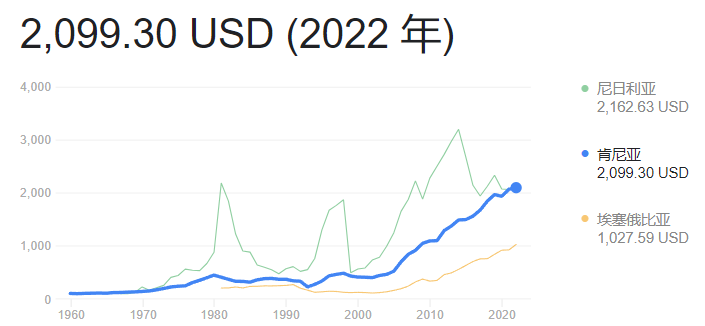
Moreover, the general level of computer literacy in Kenya is high, especially among the younger generation. Kenya has one of the highest internet penetration rates in Africa, with the majority of internet users accessing the web via mobile devices.
In 2019, 88% of bettors used mobile phones for betting, and this number is expected to have increased by now.
As of early 2024, the total number of internet users in Kenya reached 22.71 million, equivalent to 40.8% of the total population. At the same time, the number of social media users in Kenya also reached 13.05 million, accounting for 23.5% of the total population.
The total number of active WIFI mobile connections has reached an astonishing 66.04 million, equivalent to 118.7% of the total population. (This data reveals an interesting phenomenon: in Kenya, many people use multiple mobile connections for work, especially in urban centers—reflecting the Kenyan people's reliance on the internet and the significant role of mobile devices in their daily lives and work.)
According to Kepios data, from January 2023 to January 2024, the number of internet users in Kenya increased by 445,000, with an annual growth rate of about 2% based on the existing number of internet users.
It is worth noting that in January 2024, the number of active social media users in Kenya reached 13.05 million. This number represents 23.5% of the country's total population, equivalent to 57.5% of Kenya's total internet users.
From early 2023 to early 2024, the number of social media users in Kenya increased by 3.6 million, with a growth rate of 38.2%, indicating a rapid increase in the use of social media in Kenya.
With Kenya's population continuing to grow, its online betting market can be described as a blue ocean with seemingly limitless growth potential in the short term.
Popular Types of Betting in Kenya
According to a GeoPoll survey, 37% of respondents bet on sports events once a week, 28.5% once a month, 18% daily, and 15.8% multiple times a day.
Similar to other African nations, sports betting dominates the Kenyan betting market. However, Kenyan sports bettors also have diverse preferences, with certain sports dominating the market, such as:
Soccer: Soccer is the top choice for Kenyan bettors. The English Premier League, UEFA Champions League, and La Liga attract the largest betting shares, but the Kenyan Super League is also popular locally.
Basketball and Rugby: With the increasing popularity of the NBA, NFL, and other African leagues, betting volumes on these sports are also rising in Kenya.
Cricket and Athletics: Bettors mainly focus on international cricket matches, the Olympics, and other international events, especially those featuring Kenyan long-distance runners, making these events very popular for betting.
Boxing and Mixed Martial Arts: Boxing and mixed martial arts are sports with a historical interest in Kenya, as mentioned earlier, betting on these sports has helped reduce ethnic and social conflicts.
Therefore, sports betting platforms that include these events are more favored by local users in Kenya. Operators entering the Kenyan market must ensure that their platforms include these events.
Kenyan Gambling Regulations and Licensing Applications
Having introduced the Kenyan online betting market, PASA will now gradually introduce how to apply for the relevant betting licenses in Kenya.
Typically, according to the "Betting, Lotteries and Gaming Act" of 1966, betting is completely legal in Kenya.
The most recent major change is the introduction of the "2023 Kenya Gambling Control Act," which aims to establish a new gambling regulatory authority to replace the existing Betting Control and Licensing Board (BCLB). It also prohibits the broadcast and television of gambling advertisements during specific times.
Additionally, the act requires that any betting business registered in the country must have 30% of its shares owned by Kenyan citizens and must conduct transactions with Kenyan banks.
The first online betting company in Kenya, SportPesa, obtained its operating license in 2013, and currently, 82% of Kenyan bettors have accounts on this platform.
As the Kenyan online betting market develops, the number of licensed betting operators has increased to nearly 128.
Depending on the form and scope of betting activities, the BCLB offers different types of licenses to businesses:
1. Casino Operating License – For operating physical casinos.
2. Bookmaking License – For organizing betting on sports and other events.
3. Lottery License – For conducting lottery games.
4. Gaming Machine License – For operating gaming machines at specific locations.
5. Online Betting License – For organizing and conducting betting activities on the internet.
Here, we will focus on the application for an online betting license.
The process of obtaining an online gambling license:
Step One: Prepare Documents
When applying for a license, the company must prepare the following documents:
1. Business plan outlining the business structure and objectives, as well as measures to ensure responsible gambling.
2. Legal documents related to the establishment of a company in Kenya, i.e., the registration certificate of a Kenyan company.
3. Financial statements confirming the company's financial strength, such as bank statements and audit reports.
4. Detailed information about key individuals in the company, including evidence of their experience and reputation in the gambling industry.
5. Technical documents describing business, software, and data security measures, including business description, target audience, and marketing strategy.
Step Two: Apply to the BCLB
The application should be submitted to the BCLB along with all prepared documents. The application form must detail all types of games offered and the countries/regions where bets are accepted.
Step Three: Application Assessment
The BCLB conducts a thorough review of the application, which may include integrity checks on key personnel, audits of financial and business models, and testing of gaming software to ensure compliance with safety standards.
Step Four: Pay the License Fee
Once the application is approved, the company must pay the license fee, the amount of which depends on the type and number of gambling activities.
The betting license fee in Kenya is generally lower than the casino license fee, but it may still cost hundreds of thousands of shillings annually. The fee may vary depending on the scope of activities and services provided.
Step Five: Issuance of the License
After successfully paying the fees, the BCLB will issue the license, allowing you to officially operate online gambling activities within Kenya. The license is usually valid for one year but can be renewed.
As the gambling industry in Kenya develops, the challenges for operators will also increase.
The Kenyan government faces the need to protect vulnerable groups and increase tax revenue, including addressing gambling addiction and social consequences. Therefore, the Kenyan government may continue to adjust and update legislation, including imposing stricter licensing and tax requirements on operators, and PASA will update the application steps under the new laws for everyone.
Conclusion
In conclusion, once you enter Kenya, to seize the opportunities of this high-profit market, operators must maintain the two major strategies mentioned above—1. Prioritize the internet mobile platform, especially using social media as a channel. 2. Localize betting products, focusing on the development of sports betting products.
At the same time, obtaining an online gambling license in Kenya requires compliance with local regulatory requirements. Conducting business in this field in a transparent and responsible manner not only helps build trust with participants and regulatory authorities.
For operators entering the Kenyan online betting market, it is very important to be well-prepared for the licensing process.
Of course, these cumbersome steps are not enough to deter many operators from intending to enter Kenya.
From a market perspective, Kenya's steadily growing population and economy, young demographic structure, and ever-expanding internet users make it an emerging market that cannot be ignored in online betting!
PASA hopes that through this article, your business can achieve success in the continuously developing online gambling industry in Kenya.
We look forward to discussing more unique insights about online betting in Kenya with our readers and invite you to follow the global iGaming leader's outbound information platform PASA for more industry insights.
Subscribe to the official PASA channel: https://t.me/PASAIGHYJL

